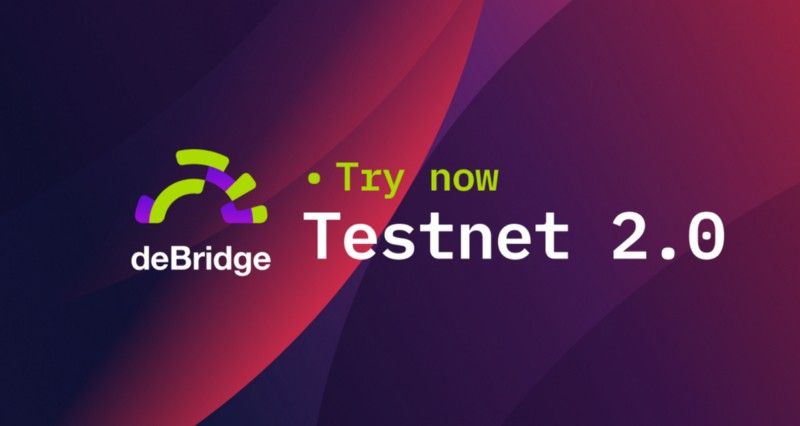deBridge releases Testnet 2.0
It’s finally here — the day the deBridge community has been waiting for the last few weeks🎉 Since launching Testnet 1.0 after winning the…

It’s finally here — the day the deBridge community has been waiting for the last few weeks🎉 Since launching Testnet 1.0 after winning the Chainlink Global Hackathon this spring, we’ve received much constructive feedback from our community and partners. The last version served its purpose well with >1400 ETH staked in Kovan, and thousands of transactions. Overall, it was a great first iteration.
Today, we’re excited to announce that Testnet 2.0 has passed internal testing and is now open to the public: Try Testnet 2.0 here
Let’s have a look at what’s new:
- Improved UI. Users will be able to transfer assets cross-chain with the familiarity of a Uniswap-like approach and intuitive layout.
- No listing mechanics. Any arbitrary asset can be bridged. The wrapped asset is automatically deployed when a token is transferred into the target chain for the first time. Wrapped assets have the same addresses in EVM blockchains and the deployment of the wrapped asset costs just ~725k of gas.
- Gas optimizations for affordable cross-chain transfers (No more expensive gas fees on Ethereum!). Claiming of tokens on the target blockchain costs just ~250k of gas.
- deBridge explorer that shows all protocol statistics and cross-chain transactions details. The receiver of the transaction will know the sender’s address to validate the transaction is from a trusted protocol/smart contract.
- deBridge smart contracts have equal addresses in EVM blockchains.
- A new design of the deBridge infrastructure layer with off-chain validation of cross-chain transactions. Validators operate a deBridge node alongside full nodes of every supported blockchain. deBridge validators track all transactions and as soon as the transaction achieves its finality, each validator is obliged to sign its unique identifier. The resulting signature is saved into IPFS so that anyone can retrieve it. Any arbitrary user or keeper can collect validators’ signatures from IPFS and pass them to deBridge smart contract in the target chain alongside all cross-chain transaction parameters. If the minimum required signatures are valid, the smart contract executes the transaction in the target chain.
- Validators no longer bear validation costs as all signatures are stored off-chain on IPFS.
- deBridge operates as a self-sovereign protocol and is not dependent on the gas prices and uptime of any supported blockchains.
Support
For any issues or support requests please ask in our Discord or Telegram.
Remember, this product is in beta. We appreciate all the feedback, please send us any bug reports or suggestions on improving the current version — you can expect regular updates.
Join our socials to let us know what you think about Testnet 2.0, what cross-chain use cases you are excited about today, and what you would like to see in the future. We appreciate all the feedback and support thus far, and we’re looking forward to building out the deBridge ecosystem with everyone that’s part of our community🤝 You can try out the new testnet here.
About deBridge
deBridge is a cross-chain interoperability and liquidity transfer protocol that allows decentralized transfer of assets between various blockchains. The cross-chain intercommunication of deBridge smart contracts is powered by a network of independent oracles/validators elected by deBridge governance. deBridge protocol is an infrastructure platform and hooking service for:
- Cross-chain composability of smart contracts
- Cross-chain swaps
- Bridging of any arbitrary asset and data
- Bridging of NFTs